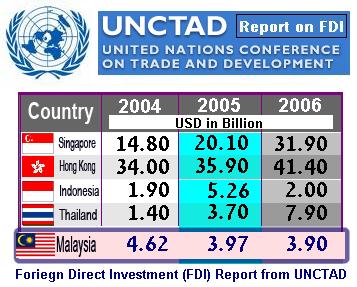The nation achieved independence in 1957 at the same time as Ghana, when both countries were almost on par economically. Both countries are celebrating their golden jubilee of national independence this year, but Ghana is a failure in economic development, with its per capita income only about one-tenth that of Malaysia.
Should Malaysia feel proud that we are now ten times better off than Ghana, as had been suggested by a Barisan Nasional MP in Parliament?
This depends on whether we want to compare with the best or with the worst. There is no point in talking about” excellence, glory and distinction” if we are only proud to be compared with failed states and not prepared to compete with our equals or betters.
Malaysia was No. 2 in Asia after Japan in terms of prosperity and income when it achieved independence in 1957, despite having a per capita income of only US$200 per year. However, South Korea, Taiwan, Hong Kong and Singapore have caught up with us and gone ahead.
Although Malaysia’s per capita GNP had started to trail behind Hong Kong and Singapore in the first decade after independence, we were still ahead of South Korea and Taiwan. Malaysia’s per capita GNP in 1967 stood at US$290 as compared to Taiwan’s US$250 and South Korea’s US$160.
In 1967, Singapore’s per capita GNP was US$600 while Hong Kong US$620.
In the past four decades, South Korea’s per capita income multiplied about a hundred-fold, Taiwan by some 60-fold, Singapore by 45-fold, Hong Kong by some 40-fold with Malaysia lagging with an increase of only some 17 fold.
The brain drain of over a million talented, creative and enterprising Malaysians in the past four decades as a result of the New Economic Policy must bear primary responsibility for Malaysia trailing so behind Singapore, Hong Kong, Taiwan and South Korea.
Let us not indulge in any finger-pointing exercise but let us own up to our mistakes and have the courage to correct them in the best interests of the nation and future generations. Continue reading “50 Years of Merdeka: Past and Future — A Reflection”



